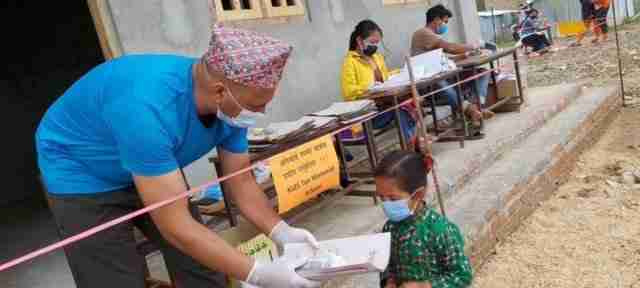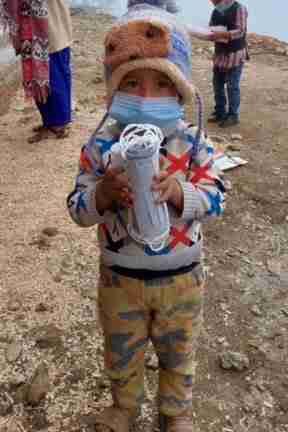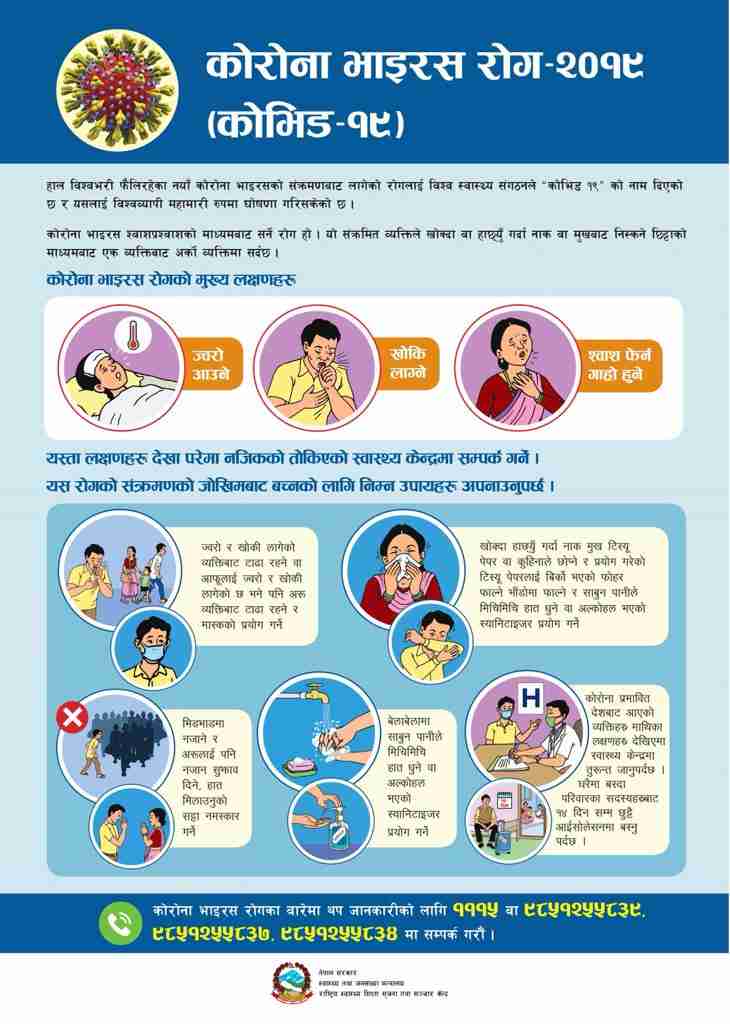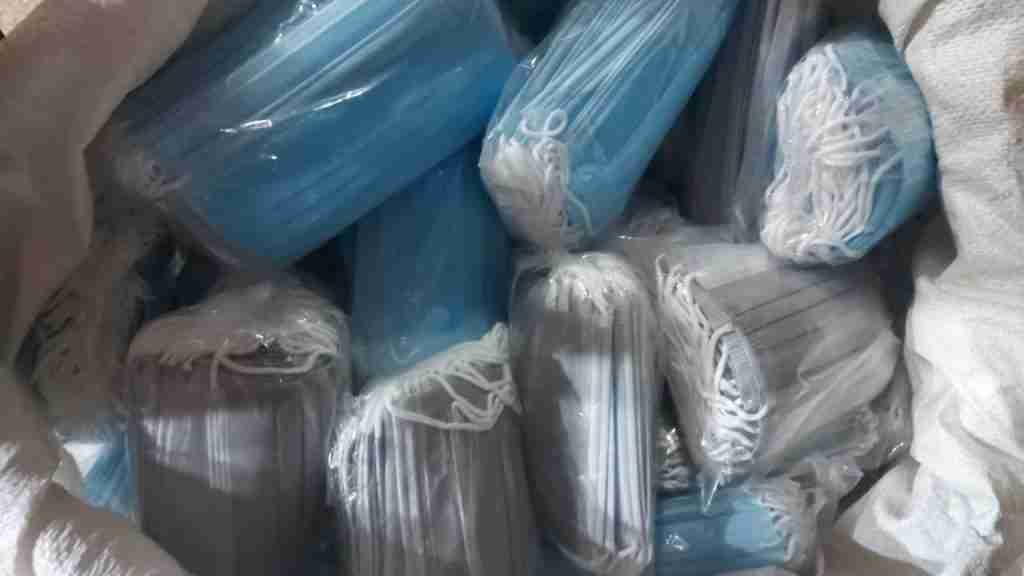
Update June 12; today the reports are handed out and the children get sanitizer and mouth masks to take home. As a precaution, a ribbon has been placed to keep the distance.

May 21, 2021; It was almost inevitable. Now that the corona infection in Nepal is peaking after India, the virus is spreading all over the country. Three weeks ago, the first corona infections were established in Sailung. The number has already risen to over 150. People are afraid and keep their distance as best they can. Nearby hospitals are overcrowded, several people in a bed and the hospitals lack oxygen for treatments.
Krishna and his team have now ordered mouth masks and hand sanitizer in Kathmandu and will distribute them to the community along with corona flyers. The school will be closed for the next few weeks.
Nepal has been hit very seriously. We stick to the studies that describe that people who live at higher altitudes, > 2500 meters, suffer less serious consequences from corona infections.


Report by Casprer Luckerhof ; Volkskrant
Fear is taboo in Nepal
There is hardly any control at the border, you will only be tested if you cross the border sweating from a fever or with other severe symptoms, because there is hardly any testing capacity. That is why a shadowy world around testing has arisen: 150 people who traveled via Nepal have been stopped at foreign airports because they still had corona despite a negative PCR test result. So there are fake test results in circulation. this has been opposed: now there are five laboratories that are sufficiently trusted, where you have to take your test.
'The Nepalese did not find the Indian migrant workers problematic. This country is trapped in poverty, during the lockdown last year people died of hunger. Those Indians may bring the virus, but also money and that means income. Nepal has to choose between two evils: corona or poverty.'
And now Nepal has both. How do people in your environment experience that?
“People are afraid because everyone knows that what is happening in India now will be ahead of them in two weeks. Fear is taboo in Nepal: the ultimate masculine society, where everything revolves around status and strength. So they do not express that fear, only very indirectly. "It's good that you're leaving," they say. Or if I invite friends over for a beer, they don't want to. That's why I know it's really serious.'
Do you think Nepal can avert a crisis like India?
'I fear the worst. The wave has only just begun, but hospitals can't handle it already. The capacity is much smaller than in India. Not only because Nepal is poor, but also because of the cultural taboo on working in healthcare. That is seen as dirty. Doctors and nurses have a low social status: they are associated with illness. Tenants who work in nursing would prefer not to have a landlord. To invest so much in a very expensive education and get nothing in return, then you must have a strong calling. So most of the Nepalese healthcare workers work abroad. This leads to distressing situations: a hospital has three IC beds with ventilation, but no one knows how the equipment works.'





